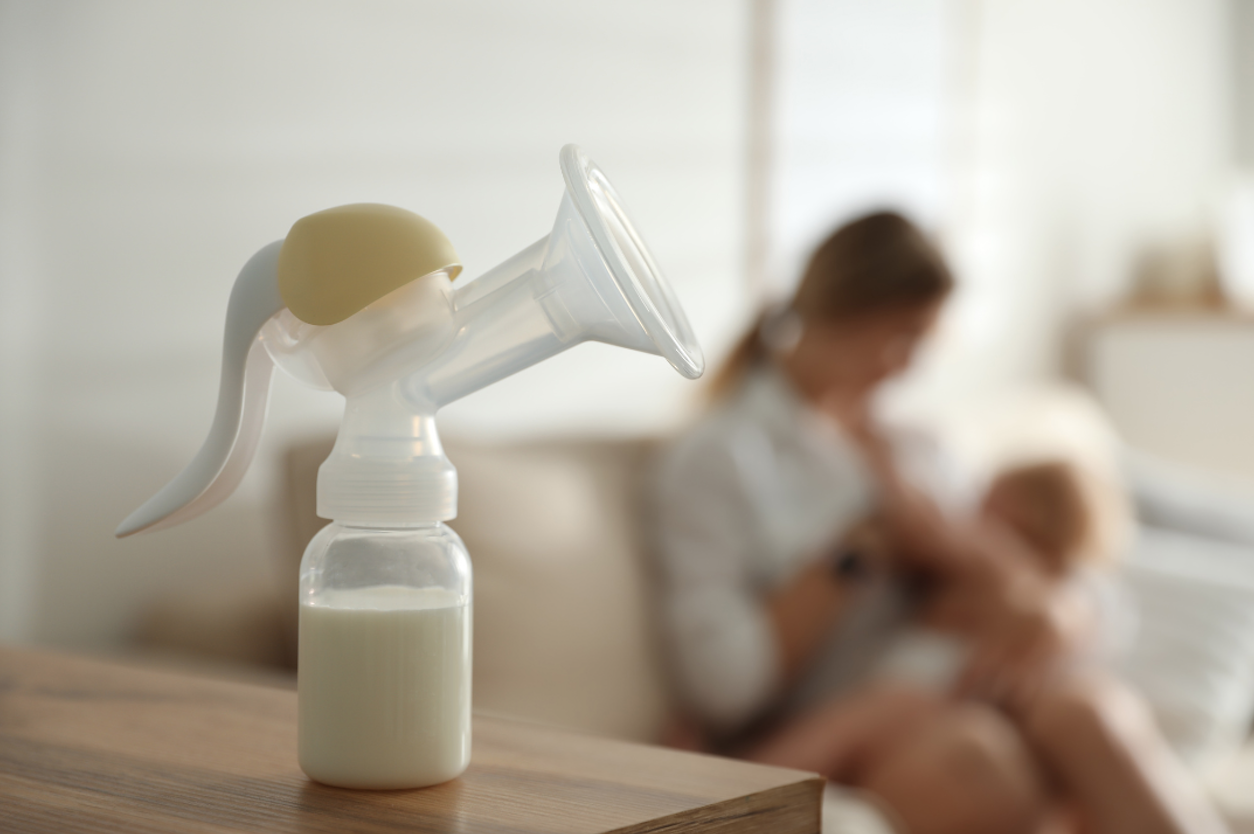
Bringing a new life into the world is a miraculous journey, filled with moments of wonder, joy, and discovery. As a new mother, your body undergoes incredible changes to nurture and sustain your little one.
One topic that frequently arises during this transformative phase is the return of your menstrual cycle while breastfeeding. In my consultations, I often encounter questions like, “When should I expect my period to return?”, “If I’m exclusively breastfeeding, won’t my period stay away?”, “Does its return indicate ineffective feeding?”, or “Could my milk supply be affected”?
Mothers harbour genuine concerns that the reappearance of their menstrual cycle might mark the end of breastfeeding or the drying up of their breast milk. Let’s delve into this natural phase, explore what you can expect while juggling the responsibilities of motherhood, and I’ll also provide you with my top 5 tips to help delay the return of your period.
The Pause in Menstruation
For some new mothers, breastfeeding provides a temporary pause in menstruation. This phenomenon is known as lactational amenorrhea, influenced by the interplay of hormones between breastfeeding and ovulation. Prolactin, the hormone responsible for milk production, can suppress ovulation.
Another key player in this process is the hormone progesterone. The return of your period is also influenced by your progesterone levels. Lower progesterone levels may result in an earlier period return, compared to mothers with higher levels.
When Should you Expect your Period?
As previously mentioned, exclusive breastfeeding makes it less likely for your period to return within the first six months, though nothing is guaranteed.
From then on and with the start of formula or the introduction of solid foods, breastfeeding sessions become less frequent, and your body may signal the return of your menstrual cycle.

However, remember that every woman’s body responds differently to these changes. Some mothers might see their periods resuming within a few months, while others could experience a delay of a year or more. Both scenarios are entirely normal, given the individuality of each woman’s body. There is no universally “normal” time for your period to return.
Will my Milk Supply Decrease or Dry Up?
The impact of your period’s return on your milk supply is a nuanced question. Every woman’s body reacts differently. As current knowledge suggests, your milk supply should remain unaffected. However, the reality is that many women perceive a dip in their milk supply, causing distress and potentially creating a cycle of reduced milk production. Stress, as we’ve discussed in this older blog, can indeed influence milk supply.

My Top 5 Tips to Try to Delay your Period
It’s important to acknowledge that a universal timeline for the return of menstruation doesn’t exist. Factors such as genetics, overall health, breastfeeding patterns, and stress levels all play roles in determining when your period resurfaces. Here are some strategies to consider in your attempt to delay your period as much as possible:
1. Frequent and on-Demand breastfeeding: Maintain a regular schedule of breastfeeding according to your baby’s needs.
2. Breastfeed day and night: Especially emphasise night-time feedings.
3. Exclusive breastfeeding for six months: Prioritise exclusive breastfeeding during this initial period.
4. Avoid or limit dummy and bottle use: Minimise the use of pacifiers and bottles as much as you can.
5. Co-sleeping: If feasible and safe, consider co-sleeping with your baby.

In conclusion, the return of your menstrual cycle while breastfeeding is a natural and personalised process. Each woman’s body responds uniquely, and there’s no one-size-fits-all timeframe.
Keep in mind that various factors can influence the return of your period. The more frequently and exclusively you breastfeed, the higher the likelihood of experiencing the beneficial contraceptive effect of lactational amenorrhea and potentially delaying your period’s return. Remember, your body’s journey is unique, and embracing its complexities is a special part of being a mom.






